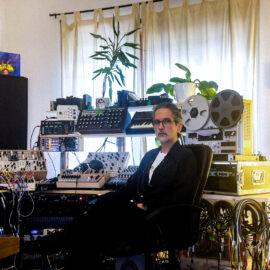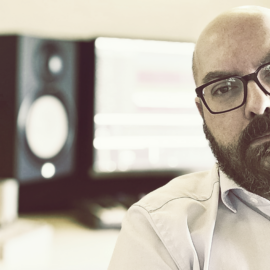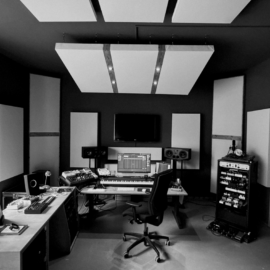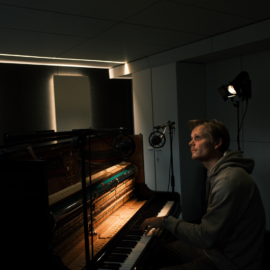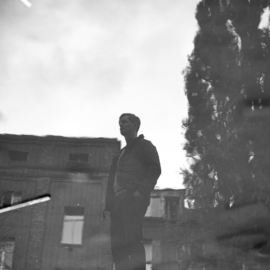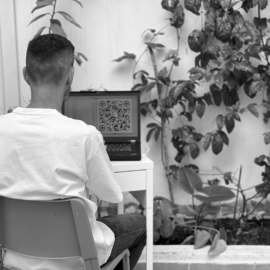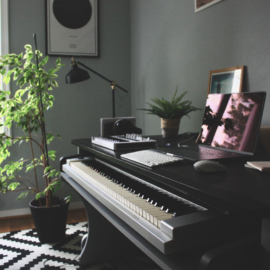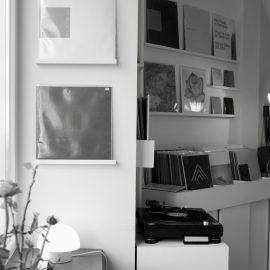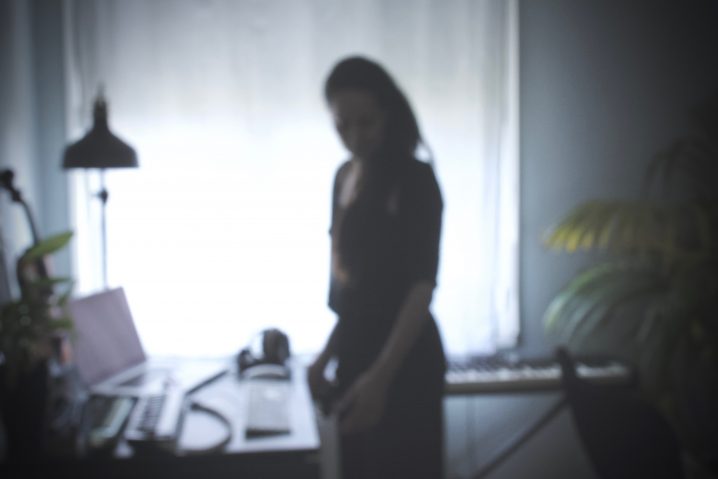
Let’s start at the very beginning. Can you tell us how you got involved in composing, and what was your very first piece of gear?
I was around 8 years old when I started taking piano lessons. We had an antique Yamaha upright piano in our living room where I often used to sit and play by ear my favourite tunes from the radio or from animation films. There was one in particular called “The Snowman” by Raymond Briggs, with the incredible music of Howard Blake, which infused me for the first time with the desire to write my own music. My parents got me my first synthesiser a few years later, it was a Yamaha PSS170 I think. The first piece I ever composed I’d dreamt it. I woke up one morning with this tune stuck in my head that had come from nowhere and I recorded it with a cassette player/recorder. I guess that was the beginning of it all.
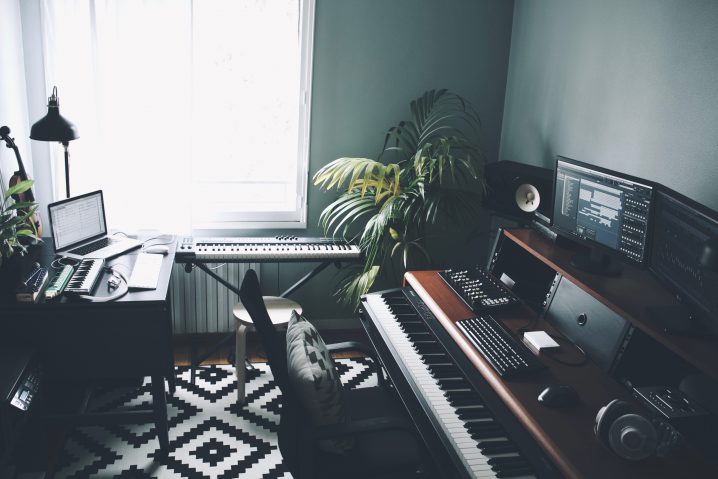
How many different studio iterations have you gone through, and what does your final setup look like right now?
Since I finished my music studies and started using computers and software I had a very minimal setup. For example back in the 90’s I had a power Mac with only a Roland Sound Canvas and a MIDI keyboard to make music. Then I changed to a PC which introduced me to a whole new world of software and I didn’t feel the need to be equipped with a lot of hardware. I pretty much have a minimal setup until now, though the quality of my gear has improved significantly through time (i.e a powerful – made for musicians – PC, a heavy-weighted Roland FP-30 MIDI keyboard, a Universal Audio Apollo twin audio interface and a Rode NT2-A condenser microphone). Apart from my piano which was inevitably left back in my old studio in Greece, my workspace suffices for now but it’s not remotely close to being the final or even the ideal type of a studio yet. I currently live in an apartment with very limited freedom to treat the room as a fully professional workspace, meaning I’d have to record/mix at another studio if I have special requirements for my work.
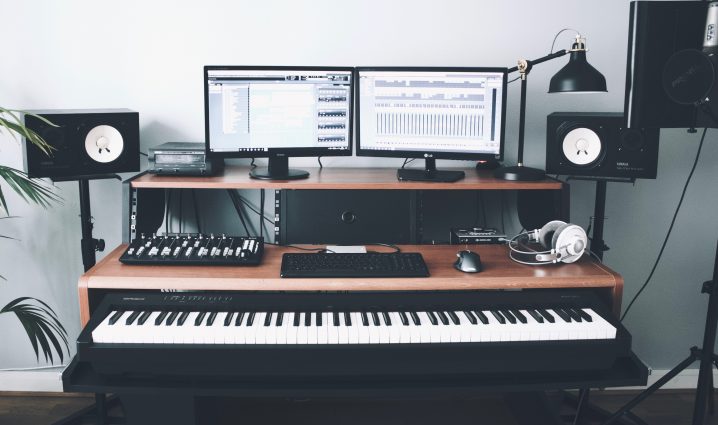
Tell us about your favorite piece of hardware.
It’s my Roland FP-30. It was a present from my sweetheart and I just love the touch of its ivory-like keys.
And what about the software that you use for production?
I work with Cubase 8 and a lot of libraries and samples.
Is there a particular piece of gear that you’re just dying to get your hands on and do you think one day you’ll have it?
I was never a gear-geek, so to speak, but I would be curious to try the ROLI Seaboard. I’ve seen in videos it can do pretty amazing things. Honestly, though, I don’t know if I would eventually buy it. When I started I was more into electronic music but as the years go by I tend to turn to a more organic approach with my music and electronic instruments don’t excite me that much anymore, not only the hardware but also the software. I would like to practice more on writing music on paper, recording with musicians and sampling properly my own sounds. I dream of having one day a studio full of real instruments, like a couple of pianos (upright and grand), drums, electric bass, various percussions and weird instruments from all over the world, a marimba, a vibraphone and, my latest obsession, a couple of hank drums tuned in different scales.
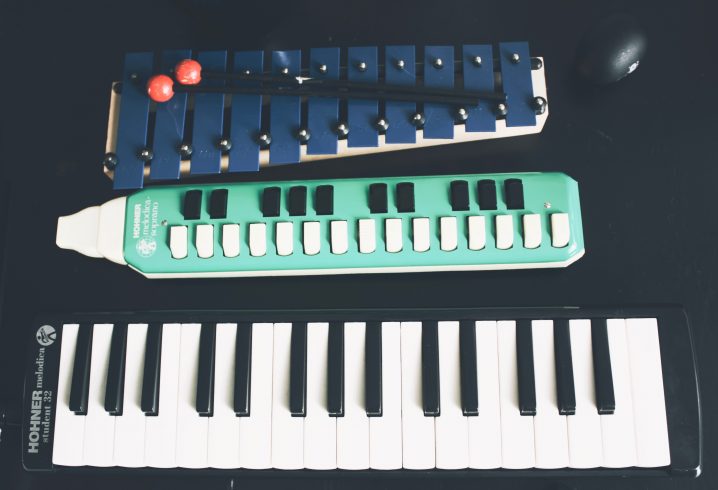
Can you please share some aspects of sound design in your work?
I may have mentioned before that I tend towards a more organic approach in my work but I don’t abandon the electronic sound so easy. One of the main reasons I got into electronic music in the first place was my admiration towards some of the greatest minds of sound-design and production. Brian Eno and Flood are two of them. In my music, I love to use very subtle electronic textures and processed field recordings from time to time. With “The gift of affliction” I worked meticulously on the production and sound design. It was something that came naturally at that time and I really had fun with it. With “Ivory” the electronic aspect is so subtle that it takes a very careful listen to notice.
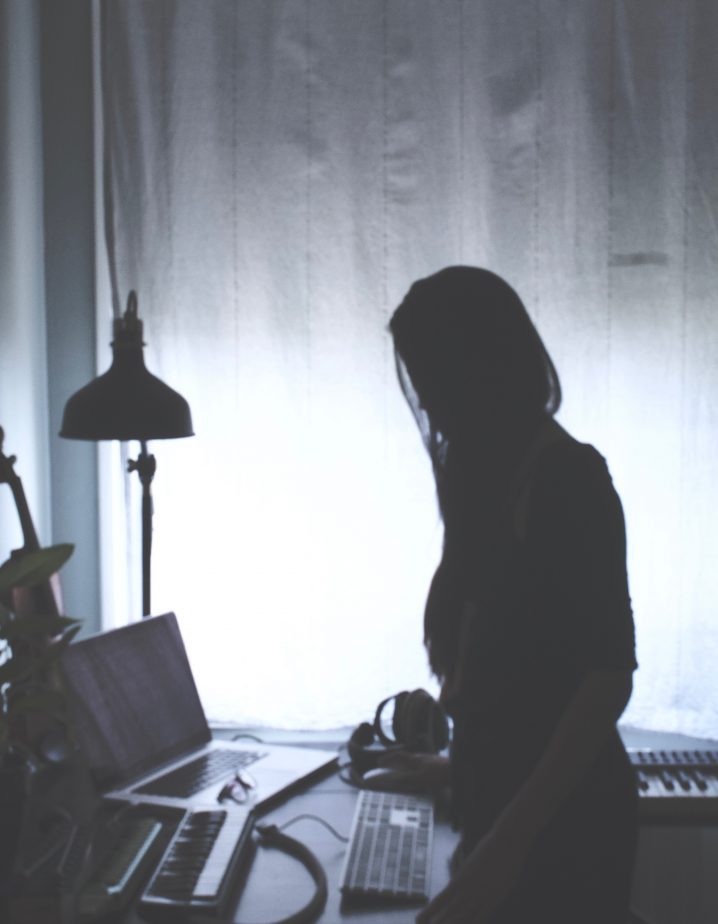
Any particular new techniques that you tried out for your new album?
I wouldn’t call it a technique but more of a challenge. I wanted to focus on the mere essence of music stripped from any kind of production. I’d often ask, “What is a piece of music when you just put your fingers on an instrument and play it without having beats or samples or any other artifice technology offers?”. If that piece has something true and meaningful to say then it would have to be able to say it in the simplest possible way. Of course that was the foundation of all compositions but afterwards, when I got into orchestrating them I found necessary to add more instruments to develop the desired emotion on some of the pieces. I also decided to write some of the parts for the strings on a sheet and had them recorded with musicians. It was a truly exciting experience that I will definitely repeat even more in the future.
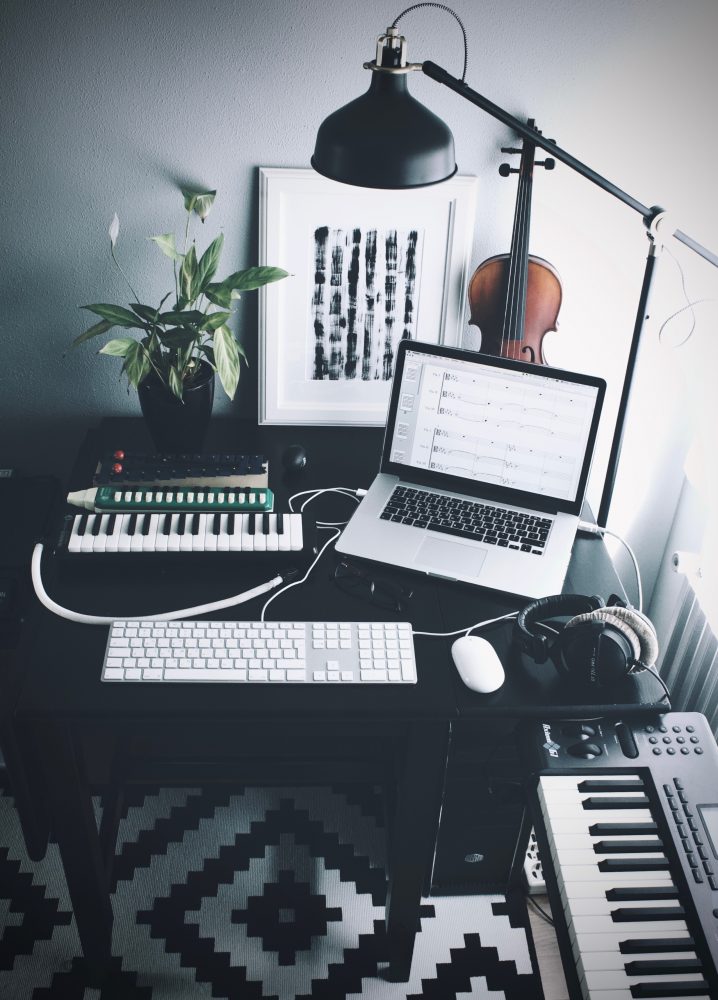
What does your live setup look like, and what do you bring with you when you travel for an extensive tour?
I am more of an introverted studio musician than a live performer and I haven’t really done a tour as a solo artist so far. I don’t mind being shut in a studio 24 hours a day but I wouldn’t play in front of an audience so eagerly. Nevertheless, I made some gigs in the past to promote “The gift of affliction” where I used a laptop, a MIDI keyboard/controller, my Melodica and my voice and I admit having a lot of fun doing it. The live presentation of my new album is much more demanding in terms of stage gear and musicians and I am currently exploring all the possible options that could make it happen.
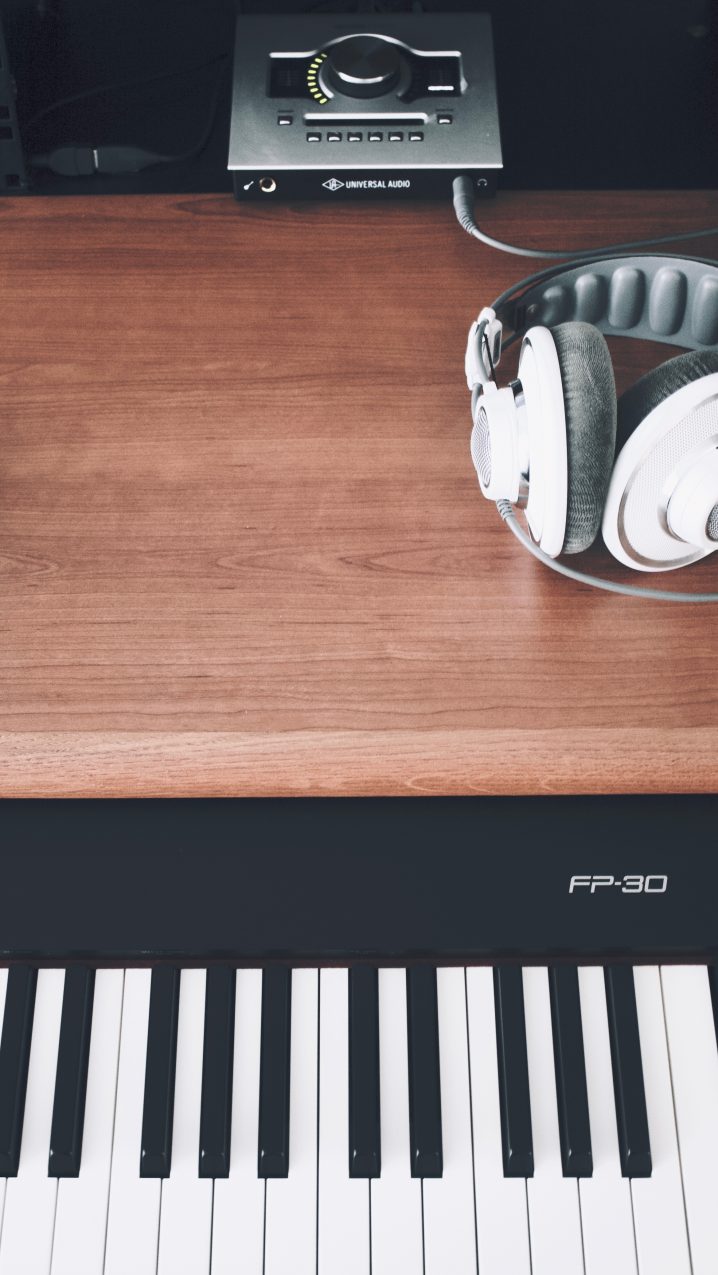
What is the most important environmental aspect of your current workspace and what would be a particular element that you would improve on?
The most important aspect is soundproofing. The building, hence my apartment, has zero sound isolation so whenever I play something from my monitors, even at a low volume, I get a nervy tapping on the ceiling after a couple of minutes, coming from the neighbour above (obviously she hates music). Unfortunately, there is no other way of solving this problem except working exclusively with headphones or moving to another place.
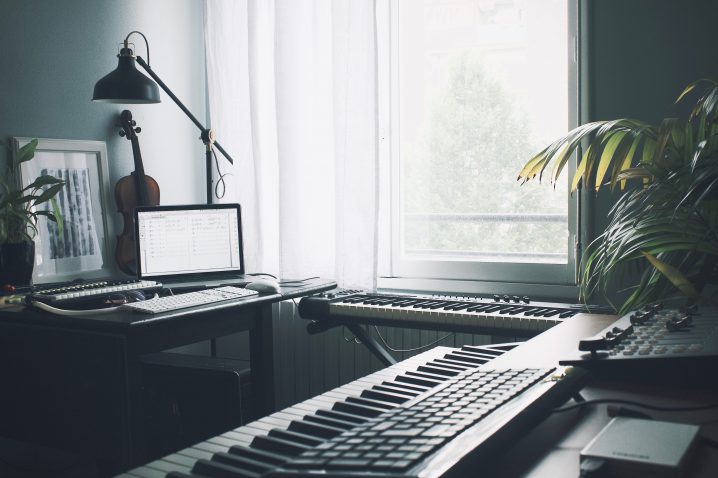
What can you tell us about your overall process of composition? How are the ideas born, where do they mature, and when do they finally see the light?
For my solo projects, I have no particular process, I just go with my gut. I’d read that Bach believed he was communicating with God when he was writing music. I don’t know whether I would call it God or anything but I can definitely say that a moment of true inspiration has a deeper, subconscious origin that can’t be explained. All I know is I sit at the piano, or at my computer and start playing or experimenting with sounds. If within the first few minutes I come up with something that “speaks to me” I try to develop it even further. If it flows out from my fingers effortlessly, without any thought, then it’s probably worth to keep. If not I usually just stop, I do something else and I pick it up again later. Sometimes it takes a day for an idea to mature, sometimes it takes years. Most of the music I have released so far was written in a day, or even in a few minutes of true inspiration. The process of orchestrating and arranging those pieces though is a whole different chapter which may take a lot of work until they finally see the light. Composing on demand is also another chapter which is determined by the deadline for each project. Deadlines are usually those nasty situations where my inspiration is often bouncing between extreme crises of panic and moments of oblivious denial. I do deliver on time though 🙂
After the piece is complete, how do you audition the results? What are your reactions to hearing your music in a different context, setting, or a sound system?
My reaction to a piece when I’ve completed it is usually dependent on my mood at that time. If I’m in a good, confident mood I’m happy with what I’ve done. If I am in a bad mood or tired I might just hate it. I tend to be overly strict with myself and hear every little detail in the way I have played something or the sounds I used here and there, and then the volume of each sound and then the fade-outs and the frequencies… and the list goes on and on. In short, it’s painful but I find myself loving every nerve-wracking minute of it.
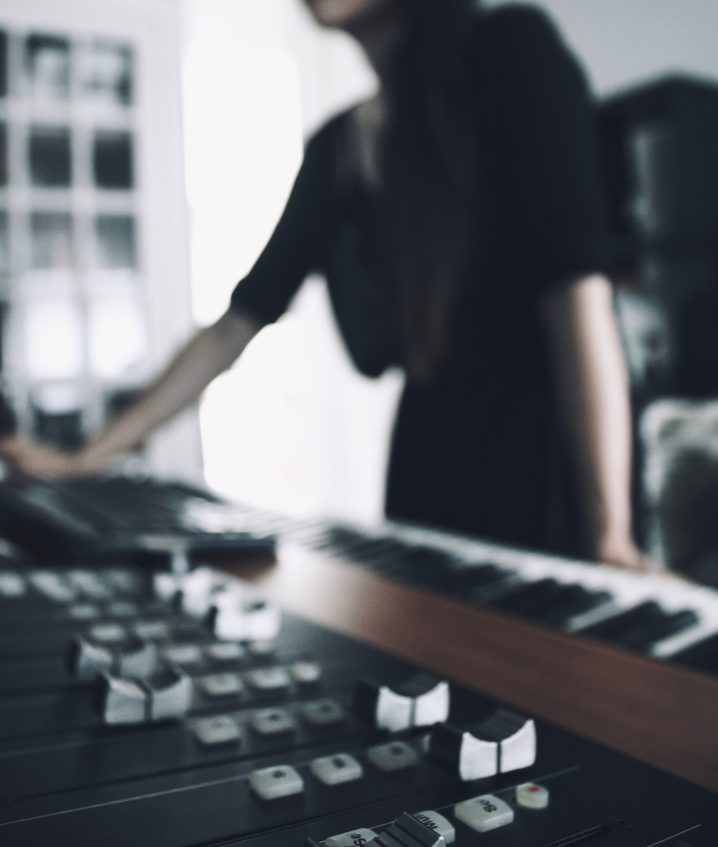
Do you ever procrastinate? If so, what do you usually find yourself doing during those times?
Procrastination is kind of like that friend that always comes uninvited to your house and hunkers down your couch, like, forever? Fortunately, I’ve realised I’m not the only one with such “friend”. It’s quite hard to organise myself especially when I don’t have a specific deadline for a project. I used to just feel guilty about it but I eventually managed to turn it to my advantage by feeding my brain with “art food”. I listen to music (usually classical or jazz), I watch movies or TV series, I read books, I even take long walks or bike-rides in nature to “charge my batteries”. Anything to take my mind off from the anxiety of finding inspiration right here, right now.
What gets you inspired?
People and their passion for life and for creation. I love to watch interviews and documentaries about extraordinary artists, philosophers, scientists etc. When I ‘m hired for commissioned work I usually get inspired by the story and the feelings each project evokes. I like to discuss it as much as I can with the director and I make a lot of research on the subject I work on. As for my personal work, my inspiration comes from my life and my personal experiences. The environment and my surroundings are also very important for me. I can’t be inspired if I am far from nature. I also have to be in a cosy, aesthetically pleasing environment to feel comfortable to write and I can’t function if my place is dirty or messy.
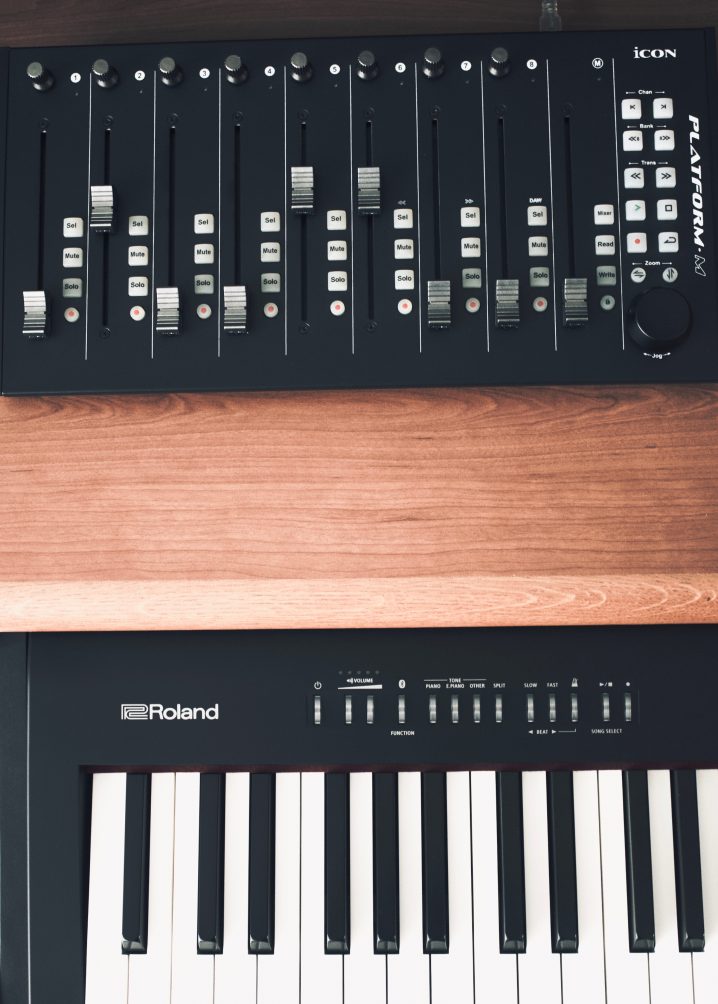
And finally, what are your thoughts on the state of “electronic music” today?
The term “electronic music” is becoming vaguer with time as it is and will always be inextricably related to the evolution of technology. It has already permeated the perception and configuration of traditional and classical instruments with incredible results so far, continuing its evolution towards artificial intelligence. It’s kind of scary to think of what the future will bring sometimes. Meanwhile, there are countless interesting things happening out there whatever the genre may be, emerging artists, labels, festivals and media etc. who support the ever-changing trends. I grew up listening to electronic music and I believe that as long as the human aspect outbalances technology it will always find a way to surprise me, move me emotionally and excite my brain as a listener.
